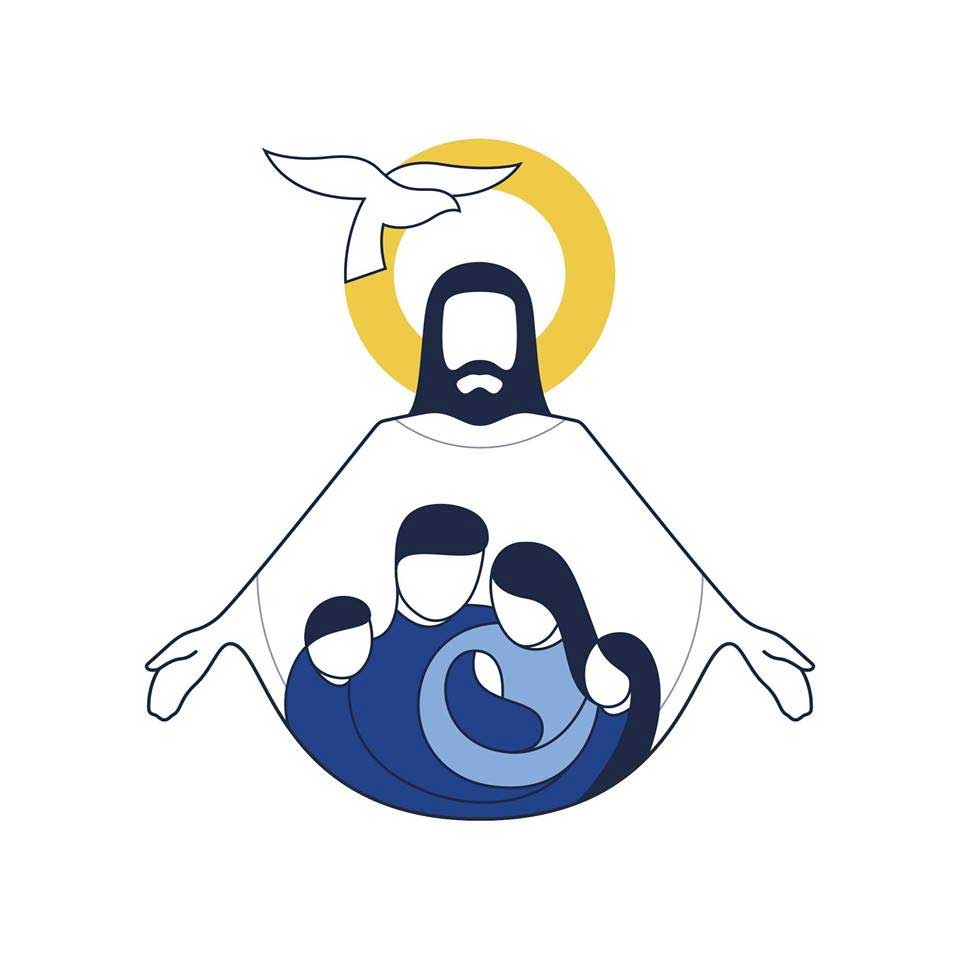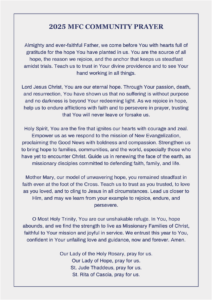September 21, 2019
Today’s reading: Ephesians 4:1-13
We are members of the one body of Christ, founded on the Rock that is Christ. God Himself as Trinity is three Persons united as one God. We in the Church are very many persons, with many different gifts (v.11), but God intends for us to be united as one. We are to be “one body and one Spirit, as you were also called to the one hope of your call, one Lord, one faith, one baptism; one God and Father of all, who is over all and through all and in all.” (v.4-6).
The enemy also knows God’s intent, and so has caused division in the body. From the very beginning, the devil caused the division between God and man, and between man and woman. Since then, the devil has successfully caused division in the body of Christ, as manifested in strife, splits and schisms through the centuries.
The enemy will continue to bring about division. That is expected of him, as he is opposed to everything good and of God. Unfortunately, we, in our fallen human natures, are very much helping him out in his destructive work. So there are two givens: (1) that the devil will cause division, and (2) that many Christians, by their responses and actions, will be helping him achieve his purpose. What the devil and other Christians do is out of our control. What we do control is our own actions.
So, if we are truly founded on Christ, who has brought love, unity and peace, here is the challenge. Unity is not yet broken when brethren say or do wrong things. Unity is broken when we react in a wrong way to the wrong that those others have done. In other words, even if it is your brother who has done wrong, if you react in a wrong way, then you are the one responsible for the disunity.
What are the ways by which we react in a wrong way to the wrong (offensive remarks, unloving acts, divisive factionalism,etc.) that others might do (or we think they do)?
- Becoming onion-skinned, that is, overly sensitive and easily irritable, to the point of being deeply offended and lashing out due to that.
- Nursing pains and hurts and even animosities against other brethren.
- Unwillingness to forgive, especially if the other party is asking for forgiveness (but even if the other party is not asking, we can still forgive).
- Responding in kind. Not being willing to turn the other cheek.
- Maligning those we are in disagreement with or those whom we believe have done us wrong.
- Telling people who are not in direct pastoral authority over the contending parties about what we perceive to be the faults or errors or even wrongdoing of others.
- Leaders sharing their difficulties with others or within community with those under their pastoral care or pastoral supervision. We should bring problems up the pastoral ladder and not down nor sideways.
- Resorting to whisper campaigns or signature campaigns against others, especially leaders.
- Engaging in gossip, which oftentimes becomes slander.
- Not going to the proper community authorities for resolution of disagreements.
- Refusing correction from elders, or always thinking that the one to be corrected is the other person and not us.
- Being a know-it-all, insisting our way is right, and unwilling to submit to decisions contrary to our own.
- Refusing to accept the decision of higher-ups, even after elevating the matter on several levels.
- Seeing the splinter in the other’s eye while missing the plank in our own.
I am sure I or you could think up of other scenarios, but you already get my meaning. Take responsibility for your action and response, and do not keep blaming the other person for starting the problem.
Now that is difficult and a great challenge. But if you want to be built on Rock, then you have no choice. Perhaps the following realities can help you.
- We belong to Christ and are his slaves. Paul considered himself “a prisoner for the Lord” (v.1a). As such, we have no rights. We simply do what our Master wills. And what he wills is unity in the body. This transcends our personal feelings, reputation and personal preferences.
- We as Christians and especially as holy warriors are to live out Christian virtues, “with all humility and gentleness, with patience, bearing with one another through love” (v.2). A person who is humble, gentle, patient and loving cannot be one who is combative, stubborn to correction, or who resorts to maligning others.
Our Christian call is, as you know, a very high calling. It is the highest of callings. It is to be like Christ himself, and it is to do divine work in the world. Thus Paul says, “I urge you to live in a manner worthy of the call you have received” (v.1b). Do you understand the call? Are you striving to live that call? If so, are you then “striving to preserve the unity of the spirit through the bond of peace” (v.3)?
What is at stake here? The ultimate goal of our life and work in community is that “we all attain to the unity of faith and knowledge of the Son of God, to mature manhood, to the extent of the full stature of Christ” (v.13). Each of us is to be another Christ, fully mature in faith. This happens only if we are founded on him. This is what the evil one wants to prevent. And he is succeeding, as he successfully brings about disunity.
So it is crucial for us to know that as holy warriors, especially those who are servant leaders, we are “to equip the holy ones for the work of ministry, for building up the body of Christ” (v.12). Build up the body in unity, peace and good order, so that we might accomplish the task given us.






